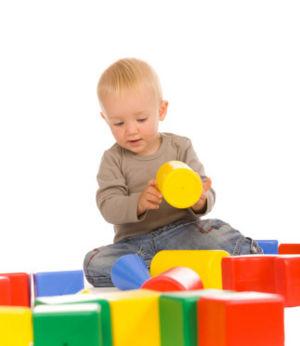
Autistic children share many of the same symptoms. These shared symptoms are characteristic of the disorder, and they help identify autism in other children. Learn about the signs of autism in four different areas: socialization, communication, physical, behavior, and cognition.
Social Symptoms of Autism
According to MayoClinic, some children with autism develop social skills normally in the first years of their life. Then over time, they may become aggressive toward others, withdrawn, and lose language skills.
Older children may also show that they:
- Don't seem to care about others' feelings
- Prefer to play alone
- Can engage well with others
While these are the common signs in older children who begin to develop autism, some of the signs in younger children include:
- Not responding when called
- Lacking eye contact
- Not hearing sometimes
- Not enjoying being cuddled or held
Communication Deficits Due to Autism
MayoClinic also mentions language deficits as a symptom of autism. Some of these signs include:
- Losing previously acquired language skills
- Does not initiate or progress conversations
- Word or phrase repetition
- Speaks in irregular pitch or rhythm
- Does not talk until after two years old and also has other developmental delays
- Lack of nonverbal communication
- Lack of facial expressions
Interesting tidbit: Just because a child with autism cannot communicate, it doesn't mean that he is not intelligent. Children with normal to high intelligence, according to MayoClinic, can learn skills quickly, but they cannot execute those skills in every day situations.
Physical Signs of Autism
According to Autism Research Institute (ARI), children with autism also have the following chronic gastrointestinal ailments:
- Diarrhea
- Gastritis
- Colitis
- Constipation
- Lactose allergies
- Gluten allergies
- Low sulfate levels
The National Autism Association (NAA) identifies the following physical impairments in autistic children:
- Abnormal gait and posture
- Incoordination
- Difficulty sitting, lying, crawling and walking
- Toe walking
- Difficulty with intentional movements
- Hyper or hypotonia
- Decreased muscle strength
- Problems chewing and/or swallowing
- Visual problems
- Skin issues
- Elevated heart rate
- Poor circulation
- Unusual sweating
Behavioral Characteristics of Autism
Taking a step back to watch a child with autism can uncover many of the signs of the pervasive development disorder.
The NAA identifies these behavioral signs:
- Agitation
- Aggression
- Irrational fears
- Tantrums
- Spontaneous crying or weepiness
- Staring
- Self injurious behavior
- Repetitive movements
Cognitive Deficits Found in Autism
It's also possible to see differences in the way that autistic children think. Many children with autism will have the following cognitive impairments, according to NAA:
- Difficult in word comprehension
- Inability to think abstractly
- Sequencing, planning and organizing difficulties
- Trouble following multiple commands
- Memory problems (short term, auditory and verbal)
- Inability to concentrate or shift attention
Help for Children with Autism Symptoms
While there is no cure for autism, symptoms can be decreased through skill development with autism treatment. Early intervention is the key to successful management of autism symptoms, so if you find that your child has many of these signs, please contact your medical doctor for a thorough evaluation.







